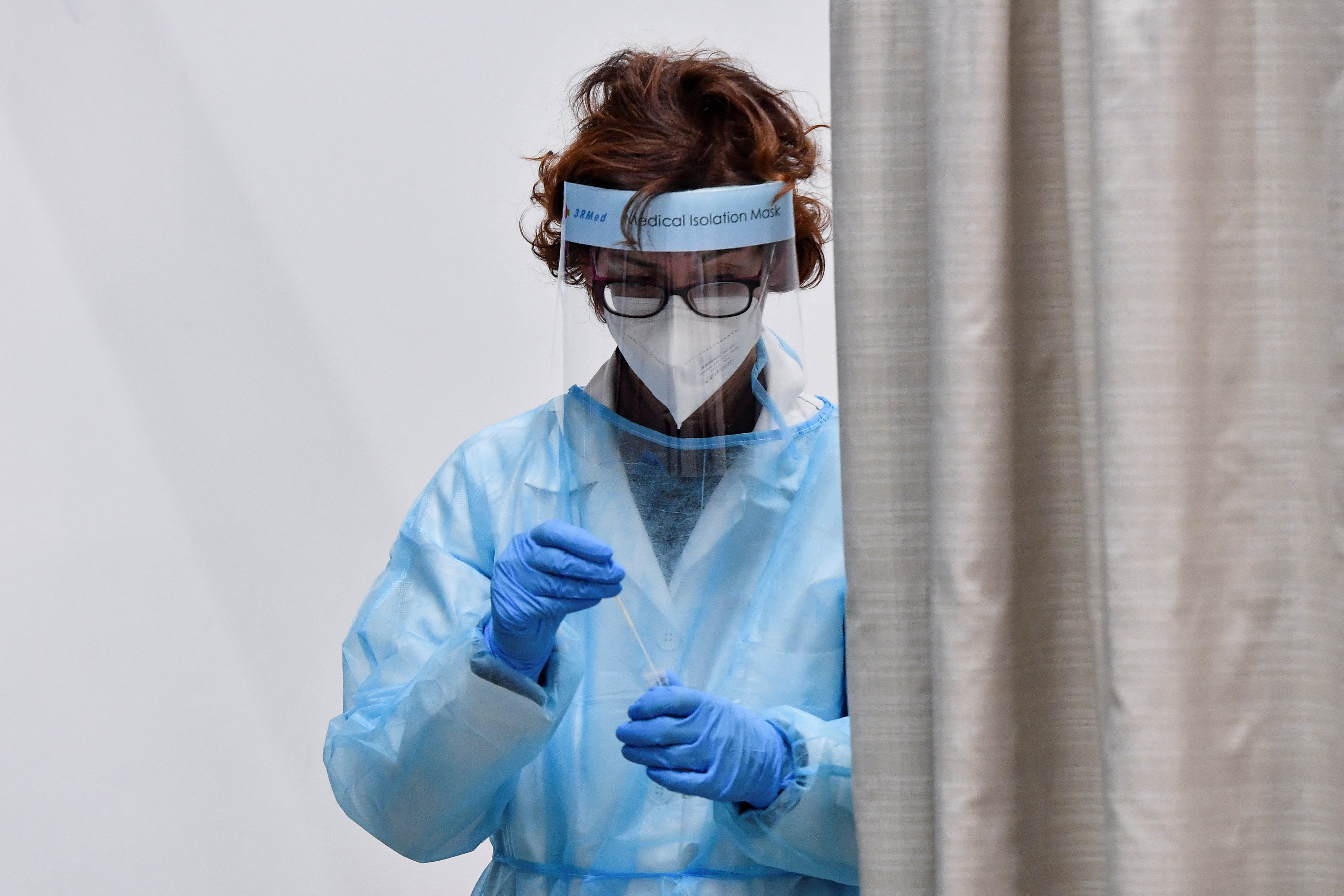With Covid cases rising in China, we must learn from the mistakes of 2020
Editorial: At a time of obvious extreme pressure on the NHS, some controls on visitors from high-risk countries, mainly China, would be in order

Given what the world has been through in the last three years, it seems curious that, in some places, there seems no great sense of urgency about the spike in Covid cases in China. The parallels, superficially at least, with the early stages of what we came to know as Covid are striking.
The epicentre of the surge is China. A principal conduit to Europe is via northern Italy and public health authorities outside are unsure how to respond. As in the original outbreaks, Italy and China’s immediate neighbours are imposing travel restrictions on visitors from China quickly, and the United States has followed suit. However, most of Europe – including the UK – is taking longer to respond.
The danger is that this does indeed turn out to be a rerun of the mistakes made in January, February and March of 2020, and the UK imports a potentially deadly disease almost absent-mindedly. Early in 2020, the scientists in the Sage advisory committee eventually took the view that it was too late to stop the infection spreading because it was already circulating internally.
In due course, that advice was to change, and eventually bans on flights to or from China and testing requirements for most of the world became mandatory. Such tests as have been undertaken suggest very high rates of infection among visitors from China, as is to be expected given the rapid spread of Covid after the sudden move out of lockdown in the country. With exponential spread, they could add unhelpfully to the queues for treatment.
The question now is what is being imported. If it is the same mix of variants and subvariants in the UK already, the concerns are lessened. The main consequence, though, would still be unwelcome – an increase in the incidence of the disease and a corresponding increase in the pace of hospitalisations, long Covid and fatalities. At a time of obvious extreme pressure on the NHS, some controls on visitors from high-risk countries, mainly China, would be in order.
There seems good reason to impose some system of testing and “vaccine passports” now at airports, both to slow the import of the existing Omicron variants, and, more crucially, to monitor for the emergence of more variants of concern. Indeed, there should be more precautionary and voluntary random testing of schoolchildren and adults to make sure the authorities can be prepared for future outbreaks, and that any individuals carrying or in contact with high-risk viruses can be traced and protected from passing it on. Sewage testing can also provide early warnings. There is no room for complacency, whatever the presentational difficulties for politicians.
The ruling assumption seems to be that the Chinese, like everyone else, are suffering from a relatively mild Omicron variant; but we need to know for sure, and we don’t. We need to find out.
Perhaps a more lethal, infectious and vaccine-evasive iteration of the coronavirus has already reached Britain or elsewhere. If so, then the sooner it is discovered, the better. If not, then we should ensure that it is kept out of the UK for as long as possible – and a testing regime is one of the best ways of doing so. A further push to get more people to take the new bivalent vaccine booster would also be prudent.
At the moment, it’s hard to know which is the more worrisome – the epidemic of anti-vaxxer misinformation or a new variant. Our defences need a boost, and so does reliable public information. Those who deliberately spread lies and confusion should be confronted and social media platforms should moderate their propaganda.
In the modern world, no virus can be contained for long, but its spread can be slowed. The alternative, as we know from experience, is not the gradual return to normalcy we’ve experienced in 2022, but a far more draconian regime of social distancing next year.
Socially and economically, it is difficult to see how Britain can support another period of extensive lockdowns, though it may be left with no alternative. This is a moment to apply the precautionary principle, and quickly.



Join our commenting forum
Join thought-provoking conversations, follow other Independent readers and see their replies
Comments